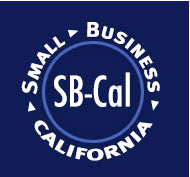Small Business California is always looking for state bureaucratic procedures that hurt small business. Yesterday I got a call from a contractor who was having problems with the Contractors State License Board CSLB. The CSLB has a website that lists all licensed contractors and includes their workers compensation insurance company and policy dates. This contractor had a renewal of their workers compensation Oct 1, 2014 and was with State Fund. His broker on September 24th sent a certificate on an industry form called in the industry the Accord certificate. The CSLB accepts this form for all insurance companies except State Fund.
State Fund does not send out certificates for anyone including the CSLB until usually a few days after the renewal date, in this case Oct 7. It then takes at least one week but usually two weeks for the CSLB to show this on their website and until they do the website will show that they have not renewed the workers compensation policy. The contractor that called me said he lost a job of about $25000 because his client checked the CSLB website and it showed the expiration of his workers compensation Oct 1.
This is absurd and the solution is simple; they simply should accept the Accord certificate like they do every other workers compensation company in the state.
Small Business California is working on getting this corrected and we will let you know in a later email what happens. Are any contractors out there experiencing this problem?
California has taken a very dim view of Non-Compete clauses in an employer/employee contract. This has made it very difficult for employers to enforce. Have any of you had problems in this area?
Scott Hauge
President
Small Business California
2311 Taraval Street
San Francisco, CA 94116
shauge@cal-insure.com
415-680-2188



